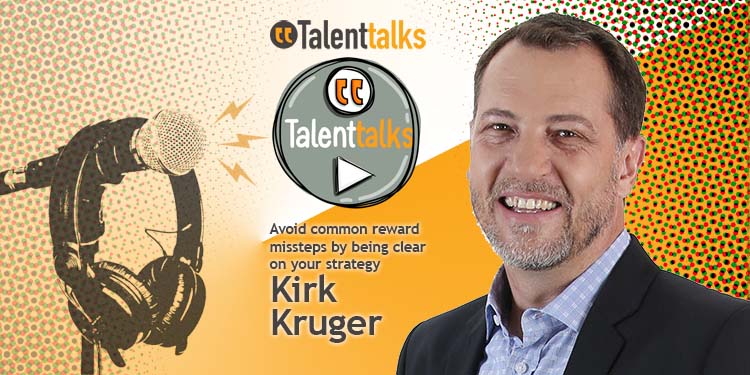Avoid common reward missteps by being clear on your strategy
Inconsistency in how people are paid and not differentiating pay enough for key skills and high-performers are some of the common missteps that result from not having a clear reward strategy in place, explains Kirk Kruger, Talenttalks’ Expert on Reward Strategy and Executive Remuneration in this podcast.
A good reward strategy doesn’t have to be complicated, but it must be clear and specific on a few important things.
- How you want to use reward in your business,
- Who you will compare to,
- What position in the market you want to pay at – for example, the median or upper quartile,
- How variable pay will work in your business, and
- What your benefit structure will look like.
Kirk also points out that a reward strategy is an HR strategy, taking into account input from multiple disciplines, and must be rooted in your business strategy.
Steps in developing a reward strategy:
- Start by looking at your business strategy and HR strategy and define the high-level statements that provide the framework for your strategy and position how you want to use reward in your business.
- Conduct a detailed analysis of the market to understand how your company is currently positioned.
- Pull a multi-disciplinary team together to ensure you have input on key aspects such as business needs and the talent management strategy to meet those needs.
- Consider how you will differentiate reward for key skills and high-performers.
- Taking a Total Reward view, consider the full basket of reward elements that you will offer covering pay (fixed and variable), benefits (such as retirement, health care and discounted products), work-life effectiveness benefits (hours and location of work), recognition and individual development opportunities.
- Regularly engage senior leadership throughout the process to get their input on the design and key business questions. When you are confident of your business case and the draft strategy, finalise it and get signoff from your leadership team.
Once finalised, your reward strategy should become part of your business’ DNA, lived and breathed every day, especially by line managers. Make sure you train managers on the reward strategy and invest time in ensuring employees also understand the principles that underpin it.
Finally, make sure you stick to the strategy and have checks and balances in place to evaluate how you are doing regularly.











